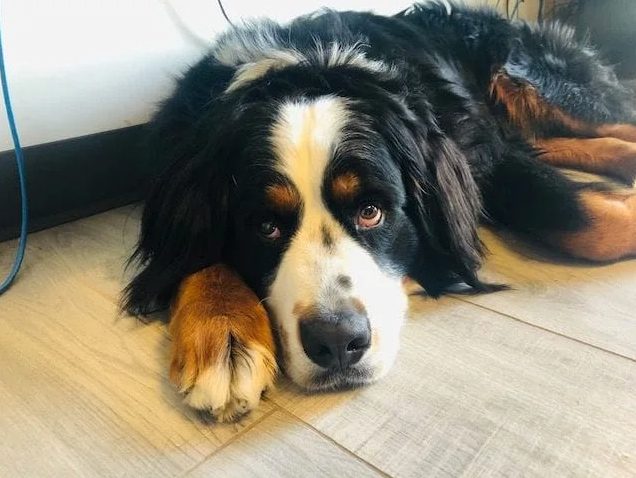
Northfield Veterinary Hospital

Audio By Carbonatix
A potentially deadly respiratory illness that’s been impacting dogs across the country has spread to the Centennial State, with numerous cases showing up in local veterinary clinics. In response, the Colorado Department of Agriculture is asking residents to be extra cautious with their canine companions this holiday season and giving people advice on what to do if the highly contagious sickness shows up.
“We have had some veterinary clinics have some anecdotal evidence of dogs coming in with respiratory issues,” says Bethany Howell, interim PIO for the CDA. “If people are seeing those symptoms, we’re just recommending that they not have them go to places where other dogs may be congregating, so dog parks, grooming facilities, veterinary clinics.”
Symptoms to look for, Howell says, include coughing, sneezing, nasal or eye discharge, difficulty breathing and lethargy. According to a Canine Respiratory Disease web page the CDA set up to share information about the outbreak, veterinarians are reporting double the number of cases than what is usually reported during a respiratory disease outbreak in dogs.
“I’ve witnessed far too much of it, unfortunately,” says Shelly Sandel, medical director of the Denver-based Northfield Veterinary Hospital. On average, Northfield has been seeing three to four dogs per day with respiratory symptoms.
“It’s definitely been alarming,” Sandel says. “For instance, I’ve seen a perfectly healthy four-year-old dog pass away 24 hours after developing pneumonia. In addition, dogs that would normally be recovered a week after the onset of coughing or nasal discharge have symptoms that have been lingering for months.”
Sandel encourages dog owners to seek medical attention for sick dogs quickly and “without fail,” and says that although they are fairly sure the infection is caused by a virus, they don’t know the nature of it yet.
Currently, there aren’t exact numbers on the outbreak, as the CDA is asking veterinary clinics to self-report instances of cases. It is working with Colorado State University to provide testing and diagnostic tools to vets.
“We’re still really early days as far as finding out what’s happening,” Howell says. “It is a little bit tricky to get numbers with self-reporting.”
When it comes to protecting your pooches, the CDA recommends starting with making sure they’re up to date on vaccinations for canine influenza, bordetella and parainfluenza. Pet owners should also limit commingling with dogs outside the home and consult a veterinarian early if their four-legged best friends present symptoms. Most important, any dogs with symptoms should be kept at home.
The CDA is also asking dog events and facilities to ensure that dogs entering don’t have symptoms, consult with a vet about best practices, and have a plan to isolate or remove sick dogs quickly.
So far there is no indication that the illness is contagious to other types of pets or humans, or that it is a human disease like RSV, influenza or COVID-19, according to the CDA. Oregon, Florida and New Hampshire are also seeing outbreaks of the mysterious illness, and Howell confirms that Colorado is working with other states along with its in-state partners, including on diagnostic tests.
“Some diagnostics have been completed, but there has not been any conclusive testing to indicate what may be causing the increased prevalence of this respiratory disease,” the CDA website says. “This does not necessarily mean this is a new or novel virus as there are many causes for canine respiratory infections.”
The Denver Animal Shelter tells Westword it hasn’t seen any instances of the illness, noting, “Our staff is keeping an eye out for the concerning symptoms as dogs are brought into our care.” Currently, the DAS says the disease shouldn’t dissuade people from adopting shelter pets, and the shelter is taking all contagion control measures.
The CDA website will be updated as new information emerges, so bookmark it and keep an eye on it to help protect your furry friends.
“The best prevention for people is just to keep an eye on their dogs and take care of them as soon as they see anything that is concerning,” Howell says.